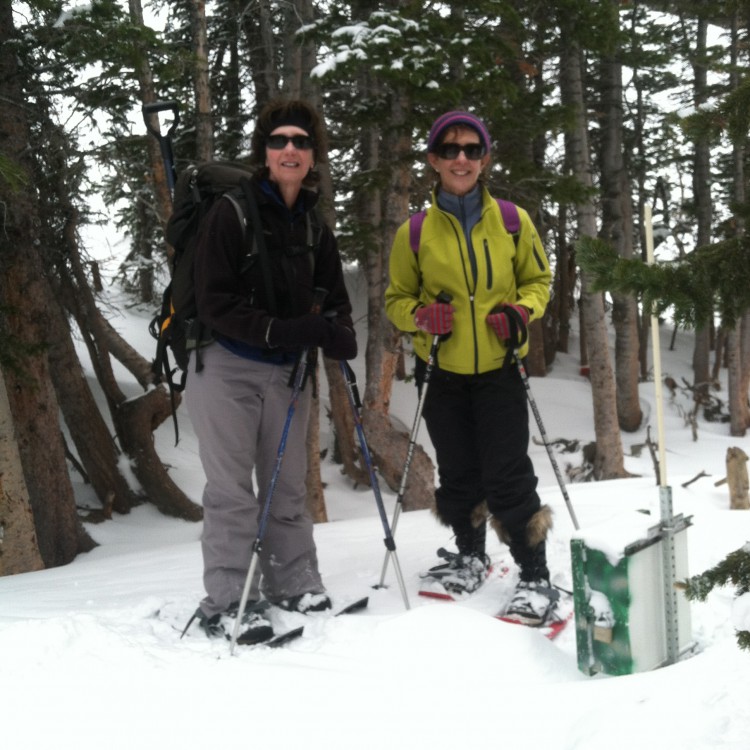Earlier this month, Dr. Suzanne Bricker from NCCOS participated in an expedition to collect sediment and water from a high altitude lake (10,400′ elevation) in Rocky Mountain National Park. The lake, Loch Vale, is part of a research program that includes a network of headwater study sites across the U.S. focusing on the effects of climate change and atmospheric pollutants on water, soil, vegetation, and aquatic life to facilitate appropriate management.
The team of 16 scientists from NCCOS, USGS, Colorado State University, and Illinois College made a rigorous hike in snowshoes with sampling gear pulled on sleds over three miles with a 1,000-foot elevation gain from the trailhead to reach Loch Vale. The researchers used hand augers to drill through more than two feet of ice to sample water and sediments. The team collected several gallons of water and retrieved two long (2.5 m) and two short (0.5 m) sediment cores that will continue the long-term research that began at this site in the early 1980s. All samples and equipment were transported by sled and backpack back down the trail.

Data from a USGS headwater stream site in Catoctin Mountain, Maryland, was previously used by NCCOS and USGS to determine the contribution of atmospherically derived nutrients to the Potomac River estuary, which ultimately supported an evaluation of potential nutrient management measures within a Chesapeake Bay tributary watershed.
For more information, contact Suzanne.Bricker@noaa.gov.
